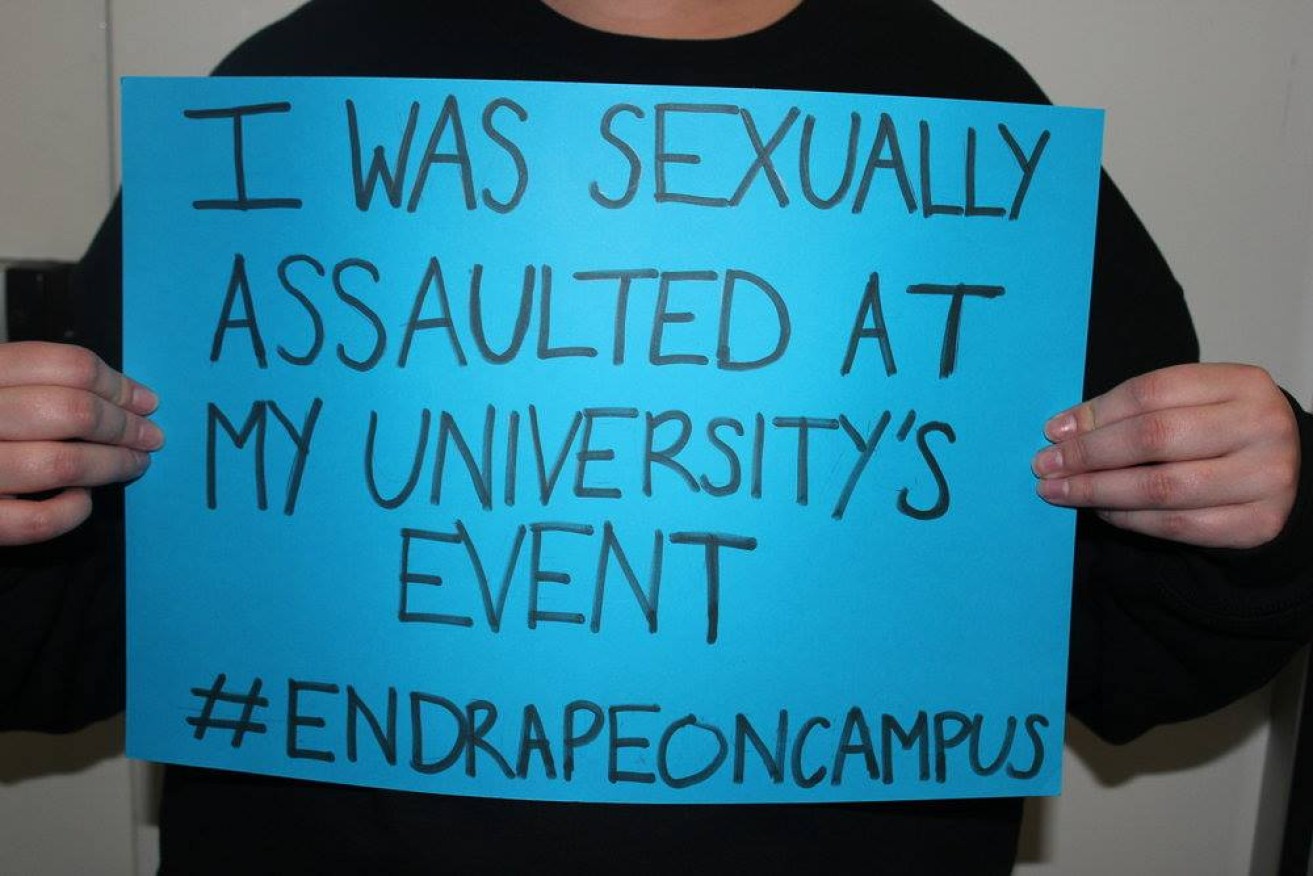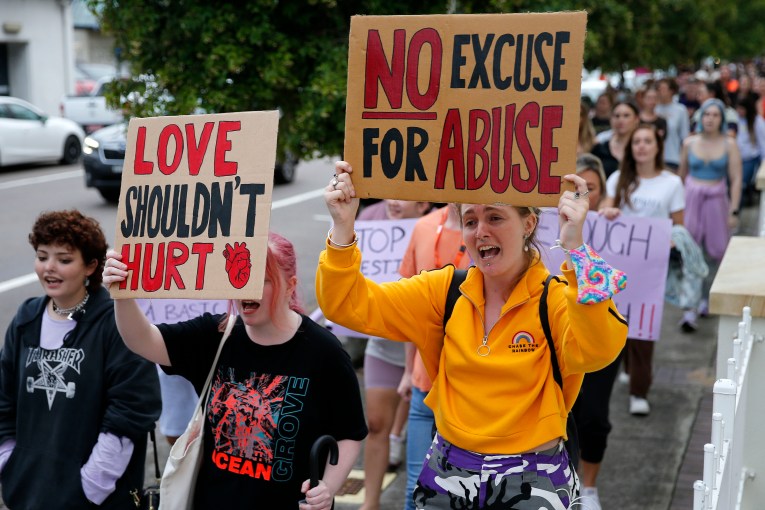University sexual assaults often occur first day on campus, report finds


Most sexual assaults at university are perpetrated at events like Orientation Week or college parties. Photo: End Rape on Campus Australia
A damning national survey has found that most sexual assaults at university are perpetrated at events like Orientation Week and often happen on a student’s first day.
Sex Discrimination Commissioner Kate Jenkins said some college residents suffered sexual violence on their first night on campus as the result of “hazing” traditions.
“The fact that these behaviours continue to exist in colleges, and that they involve sexual assault and sexual harassment of students – who in some cases are in their first week or even their first day in college – is deeply concerning,” she said.
“Perhaps most worryingly, there was a perception that colleges were aware of these behaviours and did nothing to prevent them.”
One woman said a senior student leader who ran an O-Week camp for new students raped her.
“She later heard he had previously raped other female students on camps, and no action had been taken [against him],” Ms Jenkins said.
Another student said senior club members had an attitude of “I get who I want, when I want” at social events.
Sophie Johnston, the President of the National Union of Students, said younger students were targeted at university events.
“Alcohol and hazing come into play to create an environment where these behaviours can very easily manifest,” Ms Johnston told The New Daily.
“I think there’s definitely power plays in those situations. Hazing is often orchestrated by second- or third-year students, so peer pressure is involved.”
Senior students at colleges were often appointed Residential Advisers to help younger students, but sometimes abused their position of power.
The report found senior male students would offer to “help” younger, drunk women home to their college dorm after events and rape them.
It stated: “Bianca had attended a party at the university bar and decided to go home. Two of her male friends offered to walk her home. Bianca accepted, but on the way they said they had to stop off at their college for something. Once inside one of the student’s room, they locked the door and took turns raping Bianca.”
Women were four times as likely as men to be sexually assaulted at college. Many said they woke up to a friend or fellow college resident raping them after being incapacitated or unconscious from excessive drinking.

A student protests at the Australian National University in Canberra on Tuesday. Photo: AAP
“Girls were encouraged, almost forced to drink, and I saw so many times unconscious girls carried to their bed by guys,” one student said.
“I was too scared to do anything, but I always wondered what happened behind closed doors.”
Only seven per cent of students who completed the survey lived in college, but 34 per cent of those sexually assaulted lived on campus.
Change the Course report assault statistics
The Australian Human Rights Commission report found 1.6 per cent of students were sexually assaulted in a university setting at least once in 2015 and 2016. One in five of those attacks were at a university or college event.
The remaining assaults were on public transport to and from university (15 per cent), on campus (10 per cent), or in a teaching environment (10 per cent).

National Union of Students president Sophie Johnston (back) and Sex Discrimination Commissioner Kate Jenkins are pictured delivering the report on Tuesday.
Over the past two years, 6.9 per cent of students or 10 per cent of female students said they were sexually assaulted at least once.
Ms Johnston called on clear and harsh penalties for perpetrators on campus, direct lines of support for survivors, sexual assault training for staff, and better education around consent.
“You could be out at a party and something can happen to you, [the student] might not be able to process the trauma because there is a lack of awareness,” she told The New Daily.
Protests were held at universities across the country after the findings were released on Tuesday.
Distressed readers should phone 1800 Respect on 1800 737 732, or the 24-hour support line for survivors of sexual assault at university on 1800 572 224.








